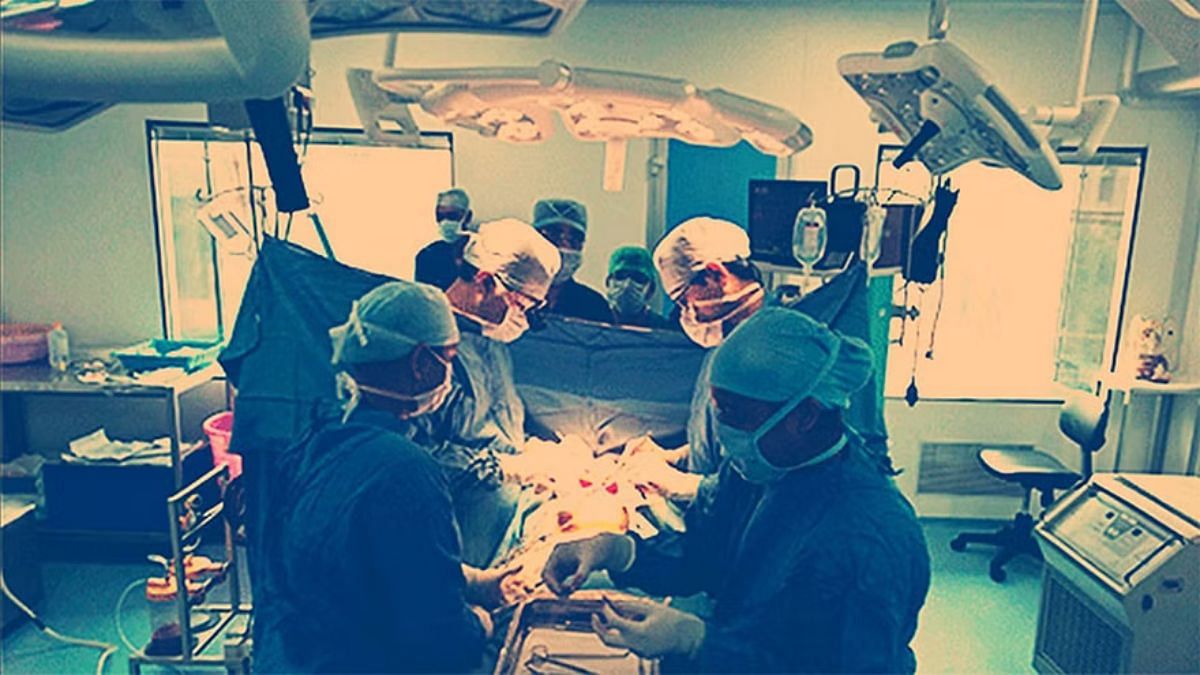New Delhi: A whopping 66.8 percent of all hysterectomies in India are carried out in the private sector and 95 percent of these surgeries may be unnecessary, claims a white paper released Thursday, on instances of hysterectomies in the country.
A white paper is a detailed and authoritative report on any subject.
The paper on hysterectomies, by the Federation of Obstetric and Gynecological Societies of India (FOGSI) and Integrated Health and Wellness Council — a not-for-profit health awareness institution — also says that most women undergoing the surgery are uneducated and from rural India.
Hysterectomy, the surgical removal of the uterus, is the most common non-obstetric gynecological surgery amongst women in the reproductive age group, according to the FOGSI and Integrated Health and Wellness Council report. The most common medical indications for hysterectomy include fibroids, abnormal uterine bleeding, uterine prolapse, chronic pelvic pain and premalignant and malignant tumours of uterus and cervix.
In high-income countries, hysterectomy is typically conducted amongst premenopausal women above age 45 years, says the report. But in India, there is an increasing concern about patterns of hysterectomy at a population level — number of surgeries per 1,000 population.
The National Family Health Survey 2019-21 (NFHS 5) had shown that in India as a whole, 3.3 percent of women aged 15-49 years had undergone a hysterectomy.
The latest paper points out that hysterectomies are prescribed in some cases where alternate methods could work well.
“In India, hysterectomies are the second most common gynecological surgery, often conducted for conditions like heavy menstrual bleeding (HMB), which could be managed non-surgically,” says the paper.
It adds: “Moreover, some of these are being performed at younger ages and during peak reproductive years”.
Hysterectomies are never the solution to most of the health problems Indian women present to doctors, such as irregular periods, white discharge or pelvic pain, the paper further says.
The paper also cautions about the adverse effects of hysterectomy, such as urinary tract infections, urinary incontinence, sexual dysfunctions, depression, increased fatigue, obesity, osteoporosis, coronary heart diseases and loss of femininity.
Talking about the issue, Hrishikesh Pai, president-elect, FOGSI, said medical practitioners should emphasise on the non-surgical, long-term options for reproductive health of women. “We need to create awareness and capacity building in this regard,” he added.
ThePrint has reached Union health secretary Sudhansh Pant on WhatsApp for comment on the paper, the article will be updated if and when a response is received.
Also read: How women sugarcane workers in Maharashtra’s Beed deal with side effects of hysterectomy
Growing concern
The NFHS 5 had found the percentage of women who had undergone hysterectomy to vary considerably across the states.
The southern region stood out for the considerably higher prevalence of the procedure, showed the survey results, particularly the states of Andhra Pradesh (8.7 percent of women had undergone hysterectomy) and Telangana (8.2 percent). The percentage of women who had undergone the procedure was also found to be high in Bihar (6 percent ) and Gujrat (4 percent).
This April, the Union health ministry asked all states to send the status of hysterectomies conducted in private and public hospitals — a year after it released comprehensive guidelines on the procedure.
The letter spoke of compulsory audits for all hysterectomies to be done by states, as is being done for maternal mortality in all healthcare institutions, both public and private. ThePrint has a copy of the letter.
The Supreme Court has been hearing a public interest litigation on unnecessary hysterectomies since 2013, and in April had asked states to follow the central guidelines issued last year.
The guidelines aim to provide direction to public health programme managers on measures to address unnecessary hysterectomies, including monitoring and awareness building at the community level. They also advise doctors on common conditions that constitute key indications for hysterectomy.
(Edited by Poulomi Banerjee)
Also read: Centre asks states for detailed data on hysterectomies amid concerns of profiteering

